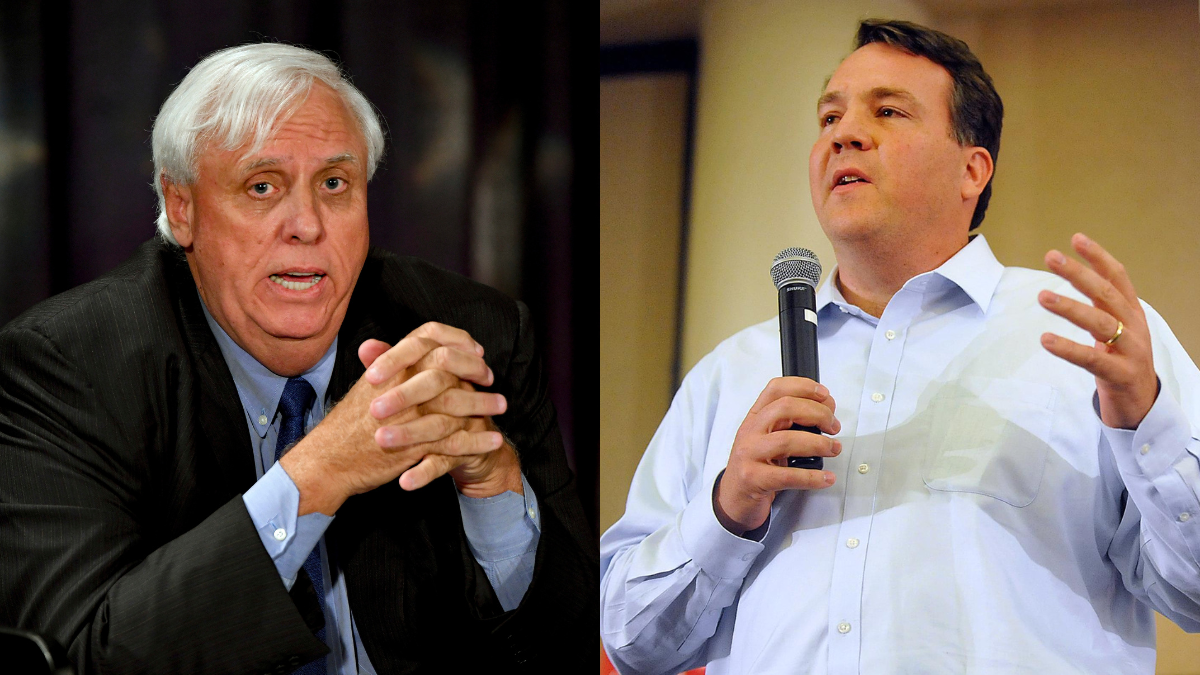The Republican U.S. Senate primary campaigns for Gov. Jim Justice and Rep. Alex Mooney released their candidates’ second quarter finance numbers this week.
The Federal Election Commission’s deadline for second quarter filing is July 15. Neither candidate had filed as of this story’s publishing.
The Justice campaign said it has raised more than $935,000 since he announced his candidacy in late April. The Mooney campaign says he raised $550,000 in the second quarter of 2023.
Mooney’s camp said it currently has $1.5 million cash on hand. Justice’s people report over $800,000 cash on hand entering the third fundraising quarter.
West Virginia University’s (WVU) Political Science Department Chair John Kilwein thinks the amounts were closer than expected.
“Given Justice’s popularity and support by Mitch McConnell and the polling data, I thought it was going to be a lot higher,” Kilwein said, referring to the Senate Republican leader from Kentucky, who recruited Justice to run.
The Justice campaign press release highlights “receiving support from 5,526 individual donors, with 93 percent of those donors giving less than $100.”
Mooney’s campaign release touts, “Club for Growth Action and Protect Freedom PAC (Political Action Committee) announced that it hauled in an impressive $13.55 million for Alex Mooney.”
Kilwein said both releases clearly come with a specific angle from the candidate’s perspective. He sees two possible scenarios for the dichotomy in highlighting small vs. big donations.
“One, you may be taking advantage of what is a reality that isn’t as helpful to you,” Kilwein said. “If that’s where you got the money from, then you simply have to brag about where you got it. Or, it just may be that both candidates are saying, here’s the narrative – Mooney may be explaining to more fiscally conservative voters, look who’s backing me. Justice is playing on his strength, a popular governor, well loved across the state.”
Mooney’s release notes, “Club for Growth PAC endorsed Alex Mooney in West Virginia’s U.S. Senate Race because Alex is a proven conservative.”
When asked about the PACs aligned with McConnell supporting Justice and how much money has been raised, Justice’s campaign manager Roman Stauffer suggested using this quote attributed to him, not answering the question:
“Governor Justice received tremendous support from West Virginians and others who have confidence in his leadership and conservative record and know he is the strongest candidate for the U.S. Senate,” Stauffer said. “Unlike our opponent, we are focused on talking to West Virginians and not coordinating with out-of-state groups desperate to influence this race.”
Justice and Mooney are the two leading Republican candidates on the May 2024 primary ballot. Incumbant Sen. Joe Manchin, D-W.Va., has said he expects to announce his future political intentions in December.
Even with West Virginia being such a red state, Kilewein said Justice and Mooney “should not think this is going to be a cakewalk once it gets to the general election.”
“Why? Just because Manchin is Manchin,” Kilwein said. “It could be a complete wipeout. But I also think that it could be tough. I definitely could see Manchin run with this kind of folksy charm against Mooney, who certainly lacks that as someone who is not a native is needed. It will be a tougher battle between Justice and Manchin, but Justice comes to this with some problems with his companies and his age and his health, and his apparent lack of interest in not wanting to live in Charleston. How are you going to want to live in D.C.? I’m not saying that the Republicans are not going to win. I’m just saying that it may not be as easy as they think it is.”
West Virginia’s 2024 primary election is May 14.
